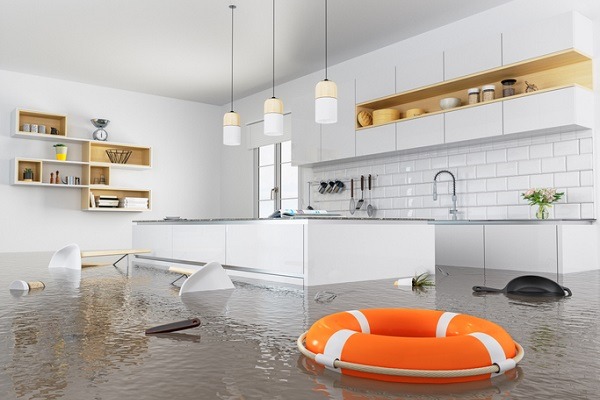
Water Heater Leak Detector: A Vital Tool for Every Home
Share
For tech professionals and enthusiasts constantly striving for more efficient and reliable home systems, the integration of smart technologies remains a top priority. Every aspect of our living spaces can now be enhanced, and addressing water-related issues is no exception. The advent of the water heater leak detector has revolutionized how we deal with potential water damage risks, making it an indispensable asset for modern homes.
Water damage is one of the most common and costly problems homeowners face. The longer a leak goes undetected, the greater the potential damage, resulting in expensive repairs and even health risks associated with mold growth. This is where the precision of a water heater leak detector comes into play. Positioned as a sentinel, it can alert you to leaks in their earliest stages, preventing potential disasters. Devices like these offer peace of mind, especially in a technologically advanced household where anticipation and prevention are key.

How Water Heater Leak Detectors Work
The functionality of a water heater leak detector is both fascinating and reassuring. These detectors utilize sensors to monitor for escaping water, detecting changes in moisture levels or the presence of water in areas where it shouldn't be. Advanced models are designed to alert via smartphone applications, instantly informing you of a possible leak and allowing immediate action regardless of your location.
The Evolution of Smart Water Detection
As with other smart home technologies, water heater leak detectors have seen significant evolution. Innovations in technology have increased the accuracy and speed of leak detection. Integrating these detectors with home automation systems provides enhanced control and monitoring, ensuring that you maintain a dry and damage-free environment.
If you're looking to delve deeper into similar technologies, consider the insights offered by [this overview on wireless water leak detectors](https://iottechnologies.io/blogs/our-latest-posts/wireless-water-leak-detector). It highlights the progressive nature of these tools, offering additional resources and comparisons.
Why Choose a Water Heater Leak Detector?
Despite the complexities of modern home connectivity, choosing a reliable and efficient water heater leak detector is straightforward. Many choose to integrate these tools for their simplified user interfaces, adaptability to existing systems, and the assurance they provide in safeguarding home investments. Often, these detectors can be part of a broader leak detection system within your home, ensuring comprehensive moisture monitoring.
Furthermore, due to the risk of undetected water leaks leading to extensive water damage, the necessity of these devices becomes glaringly evident. Incorporating a leak detector can save homeowners from relentless headaches and towering repair costs. To further explore why leak detection systems are gaining popularity, check out [this article on the benefits of leak detection systems](https://www.springwellwater.com/smart-water-leak-detectors-explained/).
Integrating Water Heater Leak Detectors with Your Smart Home
Tech enthusiasts appreciate the synergy between smart systems. A water heater leak detector can seamlessly be integrated with other elements of your smart home setup. Pairing these detectors with smart valves means that the water supply can automatically shut off if a leak is detected. This integration isn't just about alerts; it becomes about action and immediate mitigation, minimizing water damage risk.
For those interested in broadening their understanding of how smart systems can prevent such disasters, this [detailed look at plumbing leak monitors](https://iottechnologies.io/blogs/our-latest-posts/home-plumbing-leak-monitor) shares relevant insights into integrating these smart systems effectively.
What Tech Enthusiasts Need to Know
Investing in a water heater leak detector is a tale of vigilance and modern convenience. It's about embracing technology that preemptively battles the silent creeper of water damage. For the tech-savvy who appreciate the intricate synergy of smart home components, these detectors represent innovation at its peak, where precision meets foresight.
The purchase and installation of these devices are straightforward, making them accessible even to those new to smart home technology. Debugging and maintaining such systems are perks of interest to tech professionals, adding layers of both control and security to your home environment. For an in-depth guide on setting up a smart leak detection system, check out [best practices for leak detection](https://www.freshwatersystems.com/blogs/blog/leak-detection-systems).
Conclusion: The Cost-Effective Choice
The decision to protect your home with a water heater leak detector is both a forward-thinking and cost-effective one. Future innovations will further streamline these technologies, making them indispensable in every smart home arsenal. As the principal safeguard against undetected leaks and their repercussions, these detectors embody the clever blend of technology and prevention. For a more comprehensive dive into the pros and cons of these systems, visit [this helpful resource](https://www.bestbuy.com/discover-learn/pros-and-cons-of-smart-leak-detection-systems/pcmcat1637704500010).

FAQ Section
Why is a water heater leak detector crucial for homes?
It's crucial as it helps in early detection of leaks, preventing major water damage and costly repairs. It acts as a proactive tool to monitor and manage potential risks efficiently.
How do smart leak detectors integrate with existing home systems?
Smart leak detectors can connect to other home automation systems, allowing for real-time alerts and sometimes even automatic shutdown of water supply when a leak is detected.
Are all water heater leak detectors compatible with smart home systems?
Most modern leak detectors are designed to integrate seamlessly with smart home systems, but it's always good to check compatibility details specific to your home setup.
